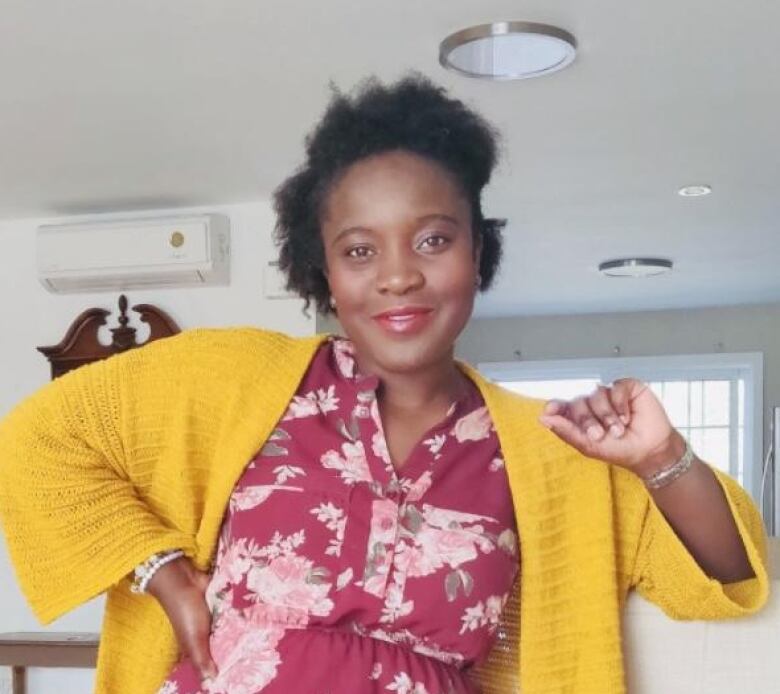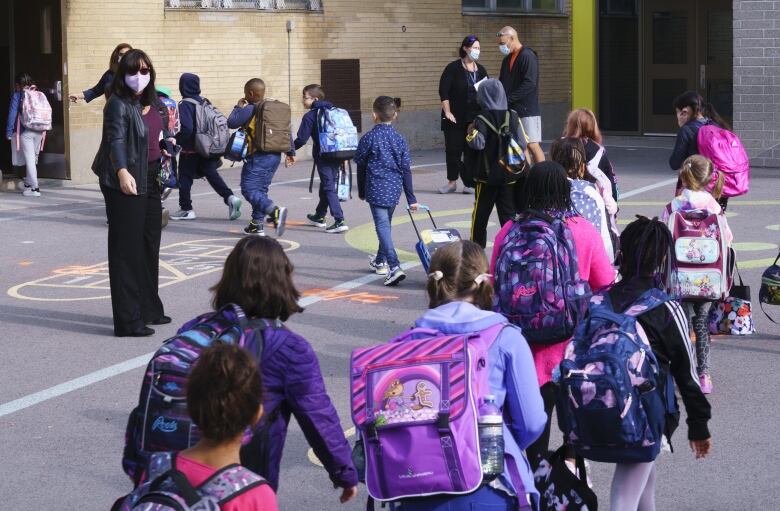How a Montreal teacher is using self-care to get through the pandemic
Juliet Oppong-Nuako shares some strategies that are helping her persevere

Teacher. Parent. Wife. Individual. In pre-pandemic times, it was a difficult task to meet the daily demands of life. During pandemic times, it is near impossible.
I teach in what is called a SEEDs classroom (Strengthening Emotional and Educational Development) within the English Montreal School Board. Before the reopening of schools at the end of August, I experienced daily anxiety thinking about what to expect among my special needs students.
I worried about my students' safety in my classroom as well as the safety of my son, who was eager to begin Grade 3 with some worries of his own. "Will I be able to play with my friends mommy? Will it be boring to go back to school? It's not going to be fun at all, mommy!"
Like many others, my son needed some assurances about the upcoming school year to put his worries at bay. My husband and I had honest conversations with our son about the realities of COVID-19 specifically, about the fact that we are in unprecedented times and that it was OK to feel emotions such as anxiety, trepidation, and uncertainty.
We were honest and told him we did not know what the school year would bring, but that as always, we were prepared to tackle it together.
Like most teachers, I returned to school in September in a state of unrest, without clear enough guidelines from the Quebec government on how to mitigate risks in the classroom. What we did receive sounded like a recommendation to simply "Get ready."
As a teacher, I am expected to be a social worker, event planner, mentor, therapist, caretaker and parent, on top of my actual profession as an instructor. Teachers are now also expected to take on the role of mock nurse practitioners, examining our students for signs of COVID-19 symptoms. It is exhausting, to say the least.
Thanks to the careful planning and effective measures of my team at Pierre Elliott Trudeau Elementary School, we are doing our best to manage the extra demands placed on teachers. Disinfectant has been placed in every entry way, our hallways have been separated with arrows so that student traffic is divided and handwashing/cleaning of all surfaces has become a priority in classrooms.
My students had many questions and worries at the beginning of the school year. In a classroom that is based on social emotional health, it was unsettling for students to realize that they could not interact with their teacher as they usually did. We spent some time setting up routines, engaging in relationship building activities, and focusing on their mental health.
In these times, especially, my students needed the routine, predictability and social emotional emphasis of my special needs classroom. Before long, they settled into the "new normal" of mask wearing, constant disinfecting and "bubbled" classrooms on the playground. Children are truly resilient.

Being carefully prepared and managing the demands, however, does not mean that anxiety and exhaustion does not remain. I'm constantly wondering if everyone is happy, washing their hands enough and whether they're safe. I am constantly being pulled in many directions and trying my best to apply best practices that take not just my students' physical health into account, but their emotional and mental health as well. The responsibilities are never-ending.
How do I juggle my responsibilities? I have realized that my mental health must be a priority. It is a given that I will always be pulled in many directions, but if I do not take my self-care seriously, my mental health will suffer. To me, methods of self-care depend on one's personal preferences. What works for one may not work for another. I prioritize my mental health and practise self-care through these and other means:
- Developing a morning routine where I spend some time alone to process my thoughts and my emotions.
- Reading engaging books not just for my intellectual development but for my emotional development and to encourage creative expression.
- Writing and processing my thoughts through creative means such as personal quotes and short essays.
- Engaging in movement activities, walking, dancing and exercising, that increase "feel good" hormones such as dopamine, serotonin and endorphins in the brain.
- Crying. Often. We often think that tears are a sign of weakness, however, I believe strongly that tears are a powerful form of release that our bodies use to process our emotions. So, I give in strongly to the release of tears.
- Connecting with others, virtually in our present situation, but connecting nonetheless. Talking to others is also one of my greatest forms of release!
Above all, the most important self-care process that I undergo is giving myself permission to feel and express my emotions. I find strength in vulnerability, in being able to bare my emotions to others and connect with them human to human. Examining and expressing my emotions helps me to regulate them and cultivate joy within my circumstances. I make it a point of finding the positive in the most mundane situations. In places where it seems that joy cannot be found, I create my own.
The art of joy cannot be mistaken with happiness. Happiness, in my opinion, is fleeting. It comes and goes like a breeze in the wind. Joy is a constant, akin to being content. As a teacher, parent, wife and individual, my joy is cultivated when there is harmony between all the roles I hold. In each role, harmony is created with routine, predictability and by setting realistic expectations.
That does not mean that harmony occurs all the time life tends to be generally chaotic, however, I strive for this ideal. I remind myself of the power of cultivating one's own joy. Joy in myself, joy in my surroundings, joy in nature, joy in the people around me. And always, the simple but pure joy of being alive.
CBC Quebec welcomes your pitches for point-of-view essays. Please email povquebec@cbc.ca for details.
For more stories about the experiences of Black Canadians from anti-Black racism to success stories within the Black community check out Being Black in Canada, a CBC project Black Canadians can be proud of. You can read more stories here.













_(720p).jpg)


 OFFICIAL HD MUSIC VIDEO.jpg)
.jpg)



























































































